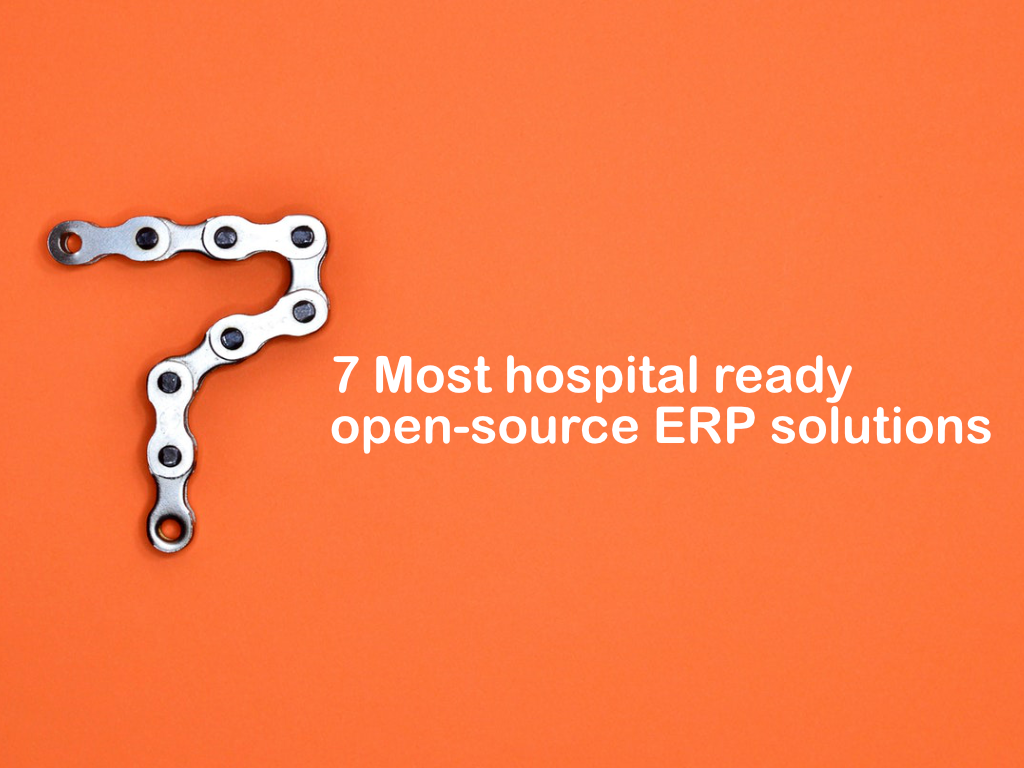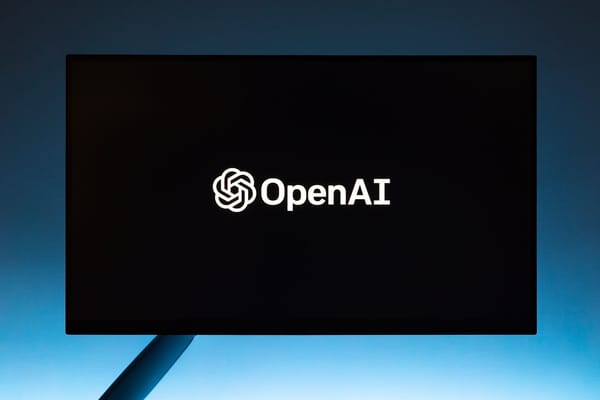7 Open source ERP-based Patient Records Management Solutions (EMR/ EHR & HIS)
There are many open source enterprise resource planning (ERP) solutions, they were designed to support companies on different sizes, however, most of them don't consider hospitals as their customers, and not following many health-care guidelines considering privacy.
Table of Content
Note: This article is an Evergreen article. It will receive continues update about the listed applications. You can save it and return to it as a updated resource.
There are many open source enterprise resource planning (ERP) solutions, they were designed to support companies on different sizes, however, most of them don't consider hospitals as their customers, and not following many health-care guidelines considering privacy.
If you are looking for open source HIS (Hospital Information Systems), we created an evergreen article for: Top 10 Open source & free HIS( Hospital Information systems) and EHR solutions.
Some of the developers are considering that in the design, and the code, which makes them more ready for health-care customers as hospitals, medical centers, laboratories, and polyclinics. Here you will find the open source ERP solutions those are compatible for health-care either for developers or with extended add-ons and modules for hospitals, clinics, and laboratories.
1- Dolibarr ERP/ CRM: DoliMed EMR
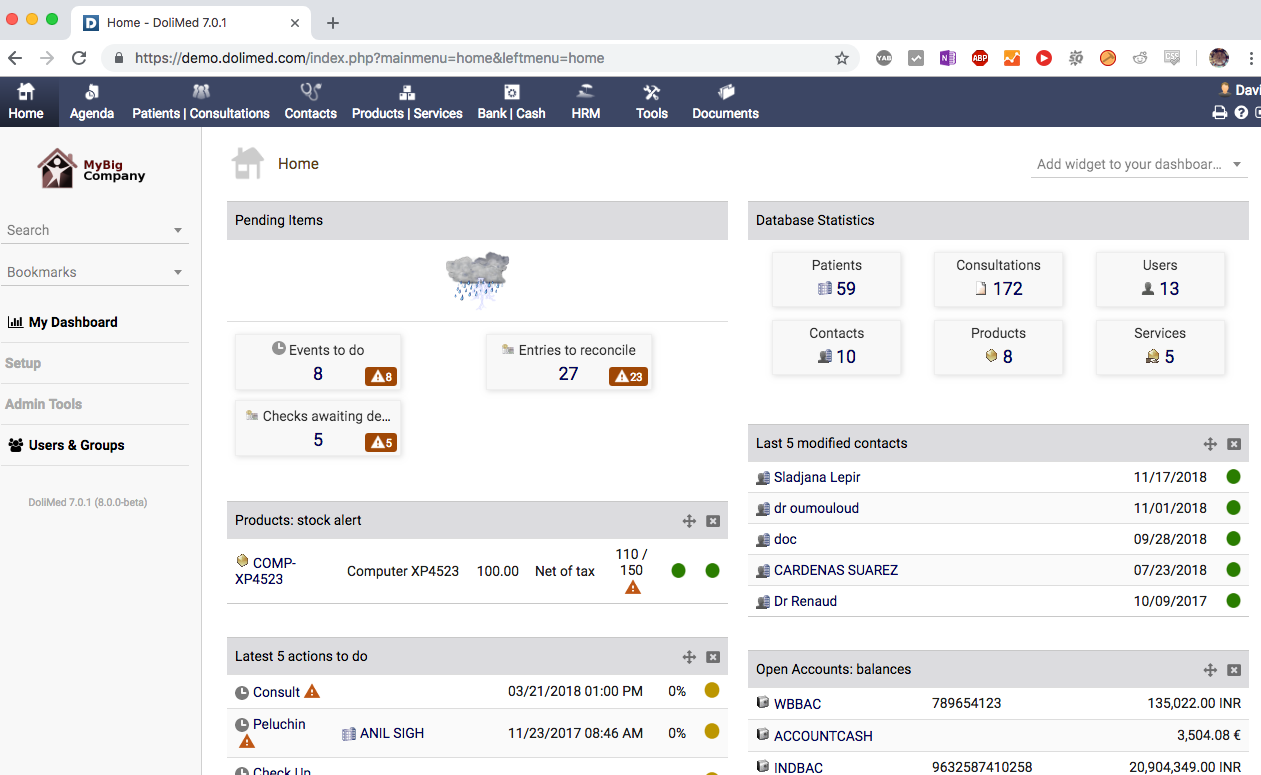
Dolibarr is a free open source ERP/ CRM solution for small and medium-size companies, It has many built-in modules for accounting, human resources management, sales management, inventory management, marketing management including mass email marketing.
Dolibarr has an ecosystem packed with commercial and free add-ons which extend the functionalities of the original build. It has extensive documentation for users and developers.
Medical Center module ( built and maintained by NLTechnology ) is an add-on for Dolibarr that designed to manage medical offices for hospitals and clinics , think about it as an EMR and appointment scheduler, though it's the same as Dolimed EMR, which is an electronic medical record system built on top of Dolibarr and released as an open source under GPL. Though it has not been updated since 2016, It's still getting downloads hits and installation, as it provides commercial customization support for the enterprise. Currently, there is no much difference between the open source version and the commercial version.
Dolibarr has an Android application, compatible with most of the android devices and receives regular updates, however, it's not a free app.
Pros
- Easy to install and manage
- Marketplace
- Hospital and medical apps
- Add-ons and themes
Cons
- Not popular, with limited developer support
- Only one company supports the medical apps
2- Tryton : GNU Health
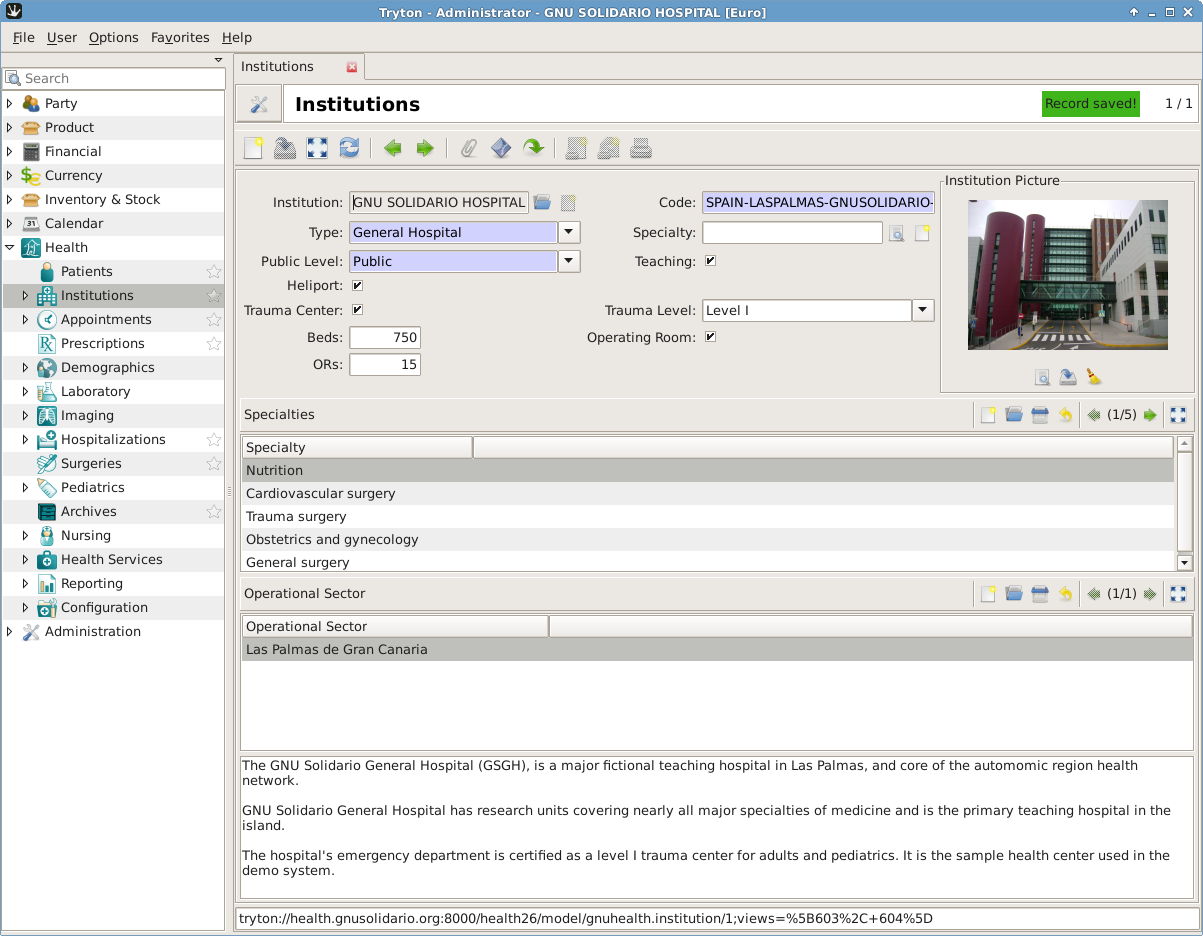
Tryton is an open source business solution, but it was not introduced as an ERP, but it's fully functional ERP solution with a well-designed data structure and features. It has desktop clients for Linux, Windows and Mac OSX, with helpful browser extensions and add-ons for Firefox and Google Chrome, It supports multiple Linux distributions as Debian, Fedora, Ubuntu, Arch Linux, and Gentoo, It has also support for NetBSD (Unix).
Tryton was built on using Python and uses PostgreSQL as a database backend, It has built-in functional modules as financial accounting, analytic accounting, sales, shipping and inventory modules. It also supports 3rd party integration with developer-friendly libraries.
Tryton has made it this list because it was used as a base for GnuHealth a complete EHR/ HIS solution featuring complete clinical flow control, patient records management, family management, in-patient ( hospitalization ) management, nursing, medication and prescription, and more modules to run hospitals and clinics.
Pros.
- Powerful data structure
- Desktop clients
- Linux compatibility
- Extended with HIS using GnuHealth
Cons.
- No modules or add-ons support
- Web-interface is basic and slow
3- WebERP
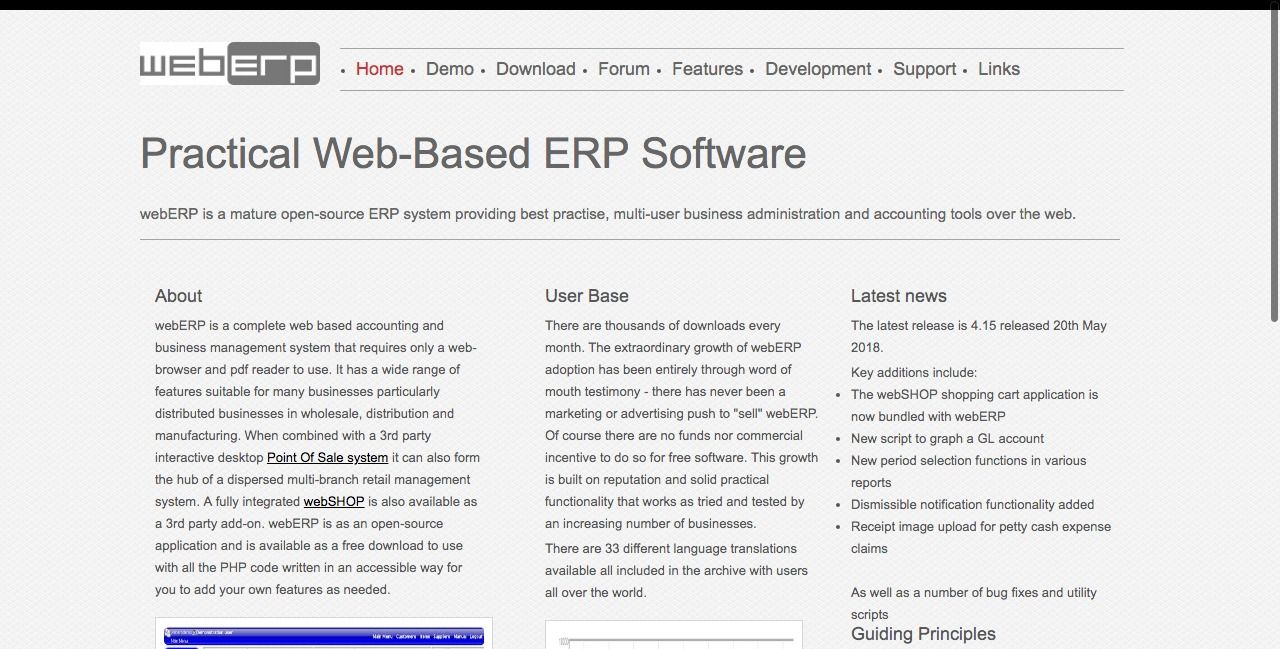
WebERP is a PHP based ERP solution, It may look poorly designed in term of user-interface but it's usable and highly customizable, Some developers who were supporting CareX HIS ( Hospital Information Systems ) shifted their support to WebERP creating a usable extensions and form HIS based on it, though it's not popular and poorly advertised it fits perfectly as complete hospital ready ERP solution. The current status of the project in term of how many developers are actively working on it is unknown, also there is not enough documentation about the webERP-Medical project.
WebERP support's page has listed several companies that support WebERP as they provide commercial support, though there is not enough information at their websites about health-care sector clients.
Pros.
- Easy to install and manage
- PHP developer support with ease
Cons.
- User-interface is basic
- Limited support
- No ecosystem
- No enough documentation
4- ERP5 (Python-Zope based ERP)
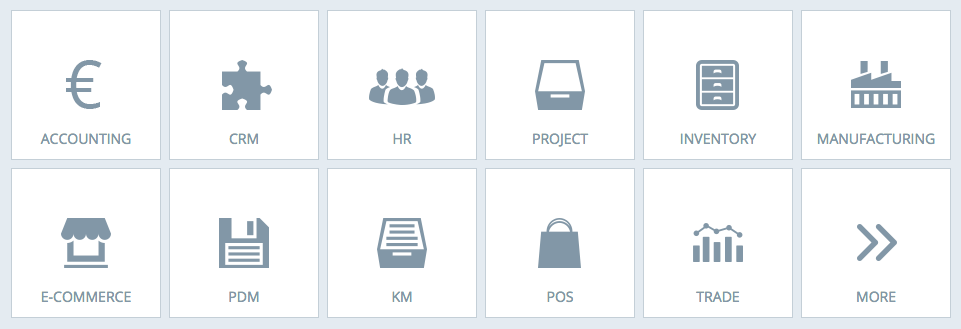
Zope is a python framework, that is built in 1999 and the core engine of the famous PloneCMS which itself was the base for much medical software in the past decade, as Ultimate EMR ( discontinued ), and many Laboratory information systems as Bika LIMS. ERP5 has many modules including accounting, HR management module, manufacturing, POS ( Point-of-Sale ), CRM, eCommerce, Project management, an inventory management module and more. Though it's not popular it's developer friendly and well documented.
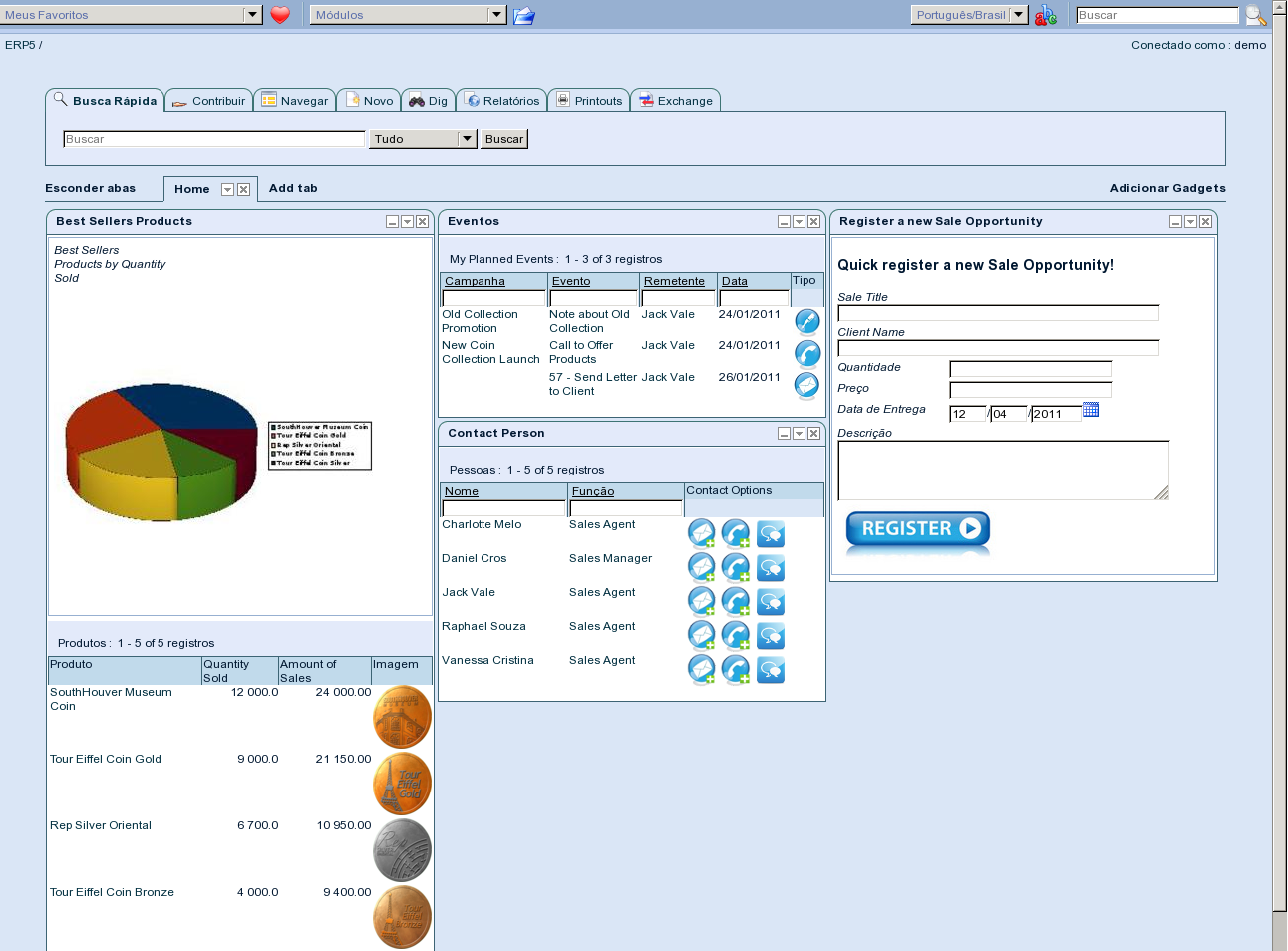
Pros.
- Developer friendly
- Regular upgrades
- Easy to extend
Cons.
- Not enough community support
- No ecosystem
5- EasyERP

EasyERP was built with NodeJS and MongoDB which makes it real-time and reactive solution, though EasyERP was built to support and integrate with many eCommerce solutions, it has the most common features as other ERPs as advanced accounting management, inventory management, HR management, CRM, sales and marketing management, all features are packed within simple user-friendly interface.
EasyERP does not have extensive documentation nor an ecosystem, also it's not popular as other ERP solution on this list, however, it's easy to integrate and extend, despite the lake of documentation it's developer friendly for NodeJS/ Mongo experienced developers, The code has been released at Github.
Yet there is no ecosystem or marketplace for it or enough developer-ready documentation to extend it, but judging by the code, experienced node developers as we mentioned can easily hack it and extend it. Unfortunately, there is not enough usage statistics or information for EasyERP in the healthcare sector.
Pros.
- Powerful dashboard
- Customized statistics and reporting modules
- Real-time support
Cons.
- No ecosystem or marketplace
- No enough documentation for developer
- No modular system
- No company adaptation yet
6- Odoo (OpenERP)
Odoo which is formally used to be ( OpenERP ) is an enterprise-grade open source ERP solution with rich echo system goes beyond the built-in modules and features, It has a marketplace that allows developers to sell their Odoo based applications/ plugins. Odoo marketplace has many healthcare modules/ systems ready to be used for hospitals, clinics, laboratories, medical-related companies, insurance companies, and even small clinics and NGO medical activities. Though almost all of the medical plugins/ modules are commercial, there are begin downloaded and used all over the world.
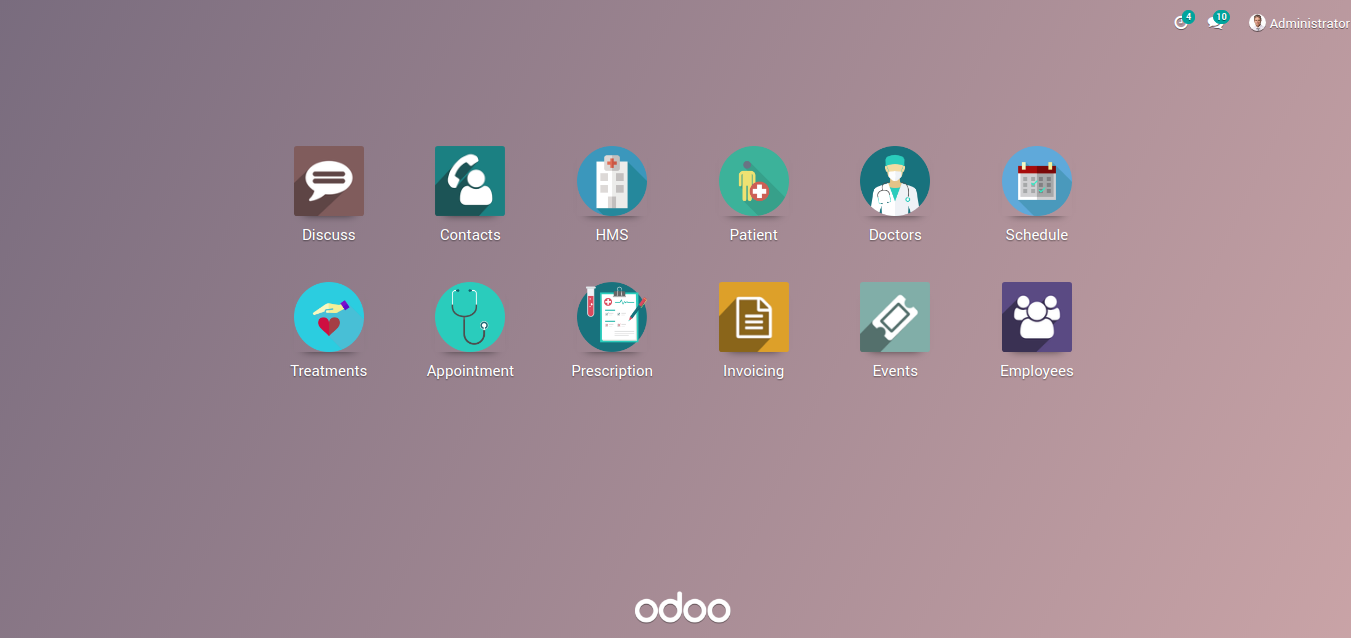
We have covered the top Odoo health-care modules for hospitals, laboratories, and clinics in here.
Pros.
- Popular among companies and developers
- Marketplace rich with medical and healthcare apps
- Powerful community support
- Commercial support from many companies
- Developer friendly Cons.
- Heavy-loaded
Odoo ERP/CRM based HIS, EMR, EHR modules.
7- ERPNext as a Hospital Information System (HIS)
We wrote about ERPNext before, unlike other ERPs, ERPNext has a custom version targeting hospitals and healthcare with several modules compatible with the built-in core modules as accounting, billing, inventory, tracking, and HR management.
ERPNext is a quite new ERP in comparison with the other listed in this article, but it's gaining more ground every day, There is not enough information about how many customers are using it for healthcare, however, it has already being used by more than 3000 countries around the world.
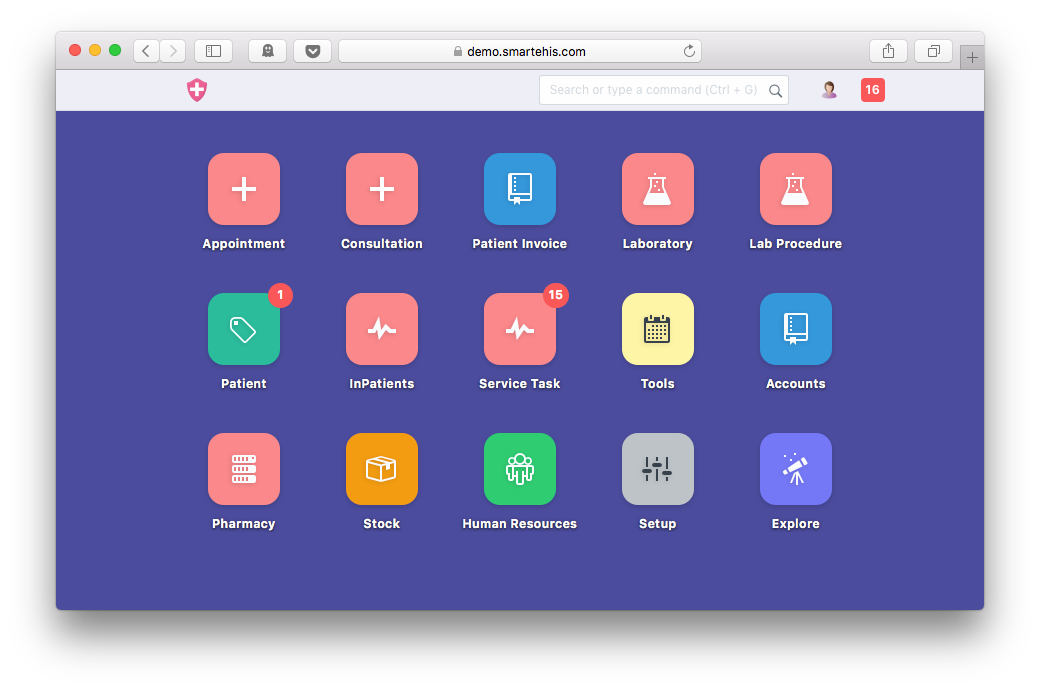
ERPNext was built on a mixed technology stacks as Python, NodeJS, using MySQL and many other libraries as Redis, which makes it unique, it has its own development tools and framework which is based on it, as well as extensive documentation for end-users and developers. Though it does not have marketplace yet, though its ready for hospitals with the current modules.
Read our review about ERPNext in Healthcare
Pros.
- Powerful module
- Developer-friendly framework, tools
- Developer-ready documentation Cons.
Cons.
- No marketplace

